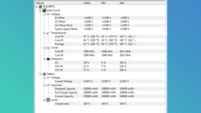
Solus Project, formerly Evolve OS, is an entirely custom, brand new version of Linux. Here is our thoughts on and experiences with it so far- as well as a detailed look into what makes the OS work.
This version of Linux is built off of a highly customized version of Gnome 3.14.2 with the brand new Budgie desktop environment, which has a mix of visual elements of Gnome 2 and 3, Chrome OS, and minor Windows influenced all built from scratch. The package manager is also customized, utilizing eopkg and pisi in the CLI. This is a change from other Linux OS’es, which typically use apt-get or other CLI options. While it takes a bit of getting used to, the basic of eopkg is still much the same to use in the CLI as compared to apt-get, which I will go into more in-depth later on.
In particular, this OS is aimed at desktop power users, as evidenced by the fact that there is only 64-bit versions available, and by the home page – www.solusproject.com. As you can see here, they are focusing very much on the desktop OS:

The initial impressions I had when installing the OS were very good, with an install set up on par with the Ubuntu setup, and formatting hard drive(s) to use was very easy. Once that was finished, installing was very fast (it only took around 10 minutes to install to an HDD) and then you reboot. When finished rebooting, you can login using the account you set up earlier, and you are ready to go.
The desktop experience of the new Budgie environment is very refreshing, with the taskbar and information on the bottom, as opposed to the side of the screen in most Linux environments.
As you can see, this Linux desktop is not like many others out there, as it has many resemblances to Windows on the one hand, and to Chrome OS on the other, and also a bit of throwback to Gnome 2 days with the styling. In fact, you can set it to Gnome 2 or “Classic” mode if you so desire, and it will replicate the look and feel of the much older desktop for those of you who really loved the Gnome 2 desktop environment.
Firstly, Solus Project is a Beta OS, which means that there is not that much software to be had. You can get a number of coding applications, like new versions of Vi, Emacs, and others, as well as productivity software like the LibreOffice suite of applications. You can also get Google Chrome, which I would highly recommend installing as the built-in Firefox browser has a habit of randomly crashing. Other than that, as of 4/18/2015 there is not a lot more, but if you are interested you can browse the documentation for all the repositories here: https://solus-project.github.io/docs/index.html

Secondly, despite the OS being a Beta OS, there is nearly zero bugs in everyday usage like web browsing, content creation via LibreOffice, or using any of the other software that you can find in the Software Center or EvoAssist programs. With the exception of Firefox intermittently crashing, and the random YouTube video crash, everything else is stable as can be for everyday use.
The Command Line Interface is accessible, as in many other Linux distros, by opening the Terminal application. Using the CLI is fairly straightforward if you have had experience with other versions of Linux that use apt-get. The major differences are in the way you do the same functions. The commands are different from in Ubuntu, but will achieve many of the same effects. I will run through a rather simple example here, to show exactly what the differences are.
I will show you the two ways to install LibreOffice, once on Ubuntu, and once on Solus project OS.
In Ubuntu, this is what you would do: sudo apt-get install libreoffice
And in Solus Project Os: sudo pisi it libreoffice-writer
So as you can see, the way to do the same things is different but is also very similar, the main difference being the commands you will use.
The Solus Project looks like a very promising OS, built for the desktop and featuring a clean, functional taskbar and action center. We have yet to see more than the first Beta of the new OS, but if the good work is kept up it will become my Linux OS of choice. But it is not without its downfalls though. The fact that the Firefox browser that is built-in can be majorly buggy is an issue, and there is very little software support at the time being. The software support will most likely improve with time, and that is good, but as it is there is very little. That being said, even with the somewhat small software amount, I still think the OS is more than robust. If it had more gaming support like Ubuntu does, I probably might switch from Windows to Project Solus as my daily driver.
With all that tallied up, I think that this is a great OS for anyone who either does not game, and wants a good productivity machine with some serious reliability! While it may not have very much in the way of software, it has all the necessities, and more software is always going to be added as time goes on. This means that while it may not be all that attractive to gamers right now, it still is a very good options for IT professionals and tech gurus to try out and use (if they are at all interested).
I would give the OS a rating of 4/5 right now, for the lack of certain software, and the bugginess that randomly occurs. Otherwise, it is a good OS.
What do you think? Do you like the OS, or think that it is simply yet another Linux distro? Let us know in the comments below!
